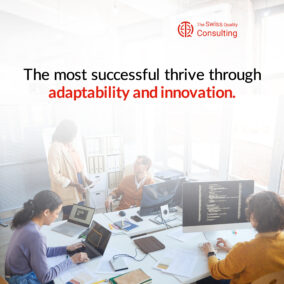Bridging Distance and Driving Growth in a Dynamic Region
The Middle East’s business landscape is embracing remote work. This article explores how cloud computing empowers businesses across the region, from Saudi Arabia’s innovation hubs to Dubai’s dynamic startups, to manage remote teams effectively, fostering collaboration and driving success.
The Middle East’s business landscape is undergoing a metamorphosis. From the bustling dynamism of Riyadh and Dubai to the visionary economies of Saudi Arabia and the UAE, a new era of remote work is dawning. This shift presents exciting possibilities for businesses to tap into a global talent pool, enhance operational agility, and optimize costs. However, effectively managing a remote workforce requires a strategic approach that fosters a sense of team spirit, seamless collaboration, and clear communication. This is where cloud-enabled remote work management steps in as a game-changer.
Cloud computing offers a robust and scalable platform that transcends physical boundaries. By embracing a cloud-centric approach, businesses across the Middle East can empower their remote teams with the tools they need to excel, irrespective of location. This fosters a collaborative work environment where employees can seamlessly share documents, engage in real-time discussions, and work together on projects, even when miles apart.
Imagine a scenario where a team in Riyadh collaborates on a marketing campaign with colleagues in Dubai in real-time. Cloud-based project management platforms become the cornerstone of this collaborative environment. These platforms provide a centralized hub for assigning tasks, tracking progress, and fostering communication within teams. This ensures everyone is on the same page, deadlines are met, and projects stay on track. Additionally, cloud-based communication tools like video conferencing and instant messaging platforms bridge the physical distance, enabling real-time collaboration and relationship building between geographically dispersed team members.
Building Trust and Transparency: The Cornerstones of Remote Success
The cornerstone of successful remote work is a foundation built on trust and transparency. Cloud-based solutions are instrumental in achieving this. Cloud storage platforms provide a secure and centralized repository for all business documents and data. This ensures everyone has access to the latest information and promotes transparency within the organization.
Effective communication is paramount for fostering trust and a sense of team spirit in a remote setting. Cloud-based video conferencing platforms facilitate regular team meetings and one-on-one conversations, allowing remote employees to feel connected and valued. Furthermore, businesses can leverage these communication tools to implement effective recognition and reward programs, ensuring remote employees feel appreciated and motivated.
Change management plays a crucial role in transitioning to a remote work model. By implementing clear communication plans, providing comprehensive training on new cloud-based tools, and addressing employee concerns, businesses can navigate the change process smoothly and ensure a positive experience for both employees and management.
Unlocking Efficiency and Innovation Through Cloud Technology
The competitive landscape in the Middle East demands adaptable and efficient business processes. Cloud computing empowers businesses to streamline operations and unlock new levels of efficiency, even with a remote workforce. Cloud-based workflow automation tools can automate repetitive tasks, freeing up valuable employee time for more strategic work. Additionally, cloud-based customer relationship management (CRM) systems provide a centralized platform for managing customer interactions, ensuring a seamless customer experience regardless of employee location.
Cloud technology can also be a catalyst for innovation in the Middle East. By leveraging cutting-edge solutions like Artificial Intelligence (AI), Blockchain, and the Metaverse offered by many cloud platforms, businesses can develop innovative new products and services, enhance data security, and streamline internal processes. For instance, AI-powered chatbots can automate customer service interactions, while blockchain technology can improve supply chain transparency and security.
Executive coaching services can be invaluable in supporting the development of leadership skills necessary to thrive in a remote work environment. Through coaching, leaders can develop the skills necessary for effective remote team management, communication, and fostering a culture of trust and accountability. This includes mastering techniques for providing remote performance feedback, setting clear expectations, and building strong relationships with remote team members.
#Cloud-EnabledRemoteWorkManagement #MiddleEast #BusinessSuccess #RemoteTeams #Collaboration #Innovation #SaudiArabia #UAE #Riyadh























